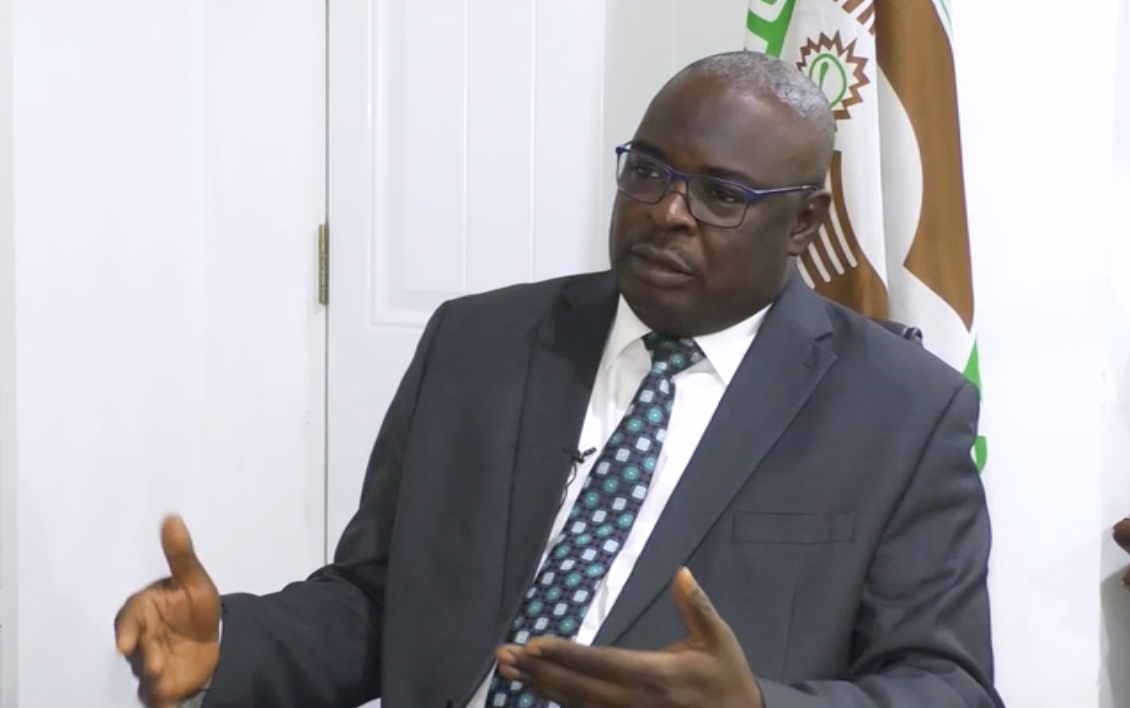Gambiaj.com – (Abuja, Nigeria) – The ECOWAS Community Court of Justice stands as a vital institution for West African citizens whose fundamental rights are not adequately protected within their own countries, Acting Deputy Chief Registrar Gaye Sowe explained during an interview on the Nigerian Television Authority’s Scale of Justice program.
Speaking with host Dele Atunbi, Sowe emphasized the court’s unique role in providing individuals and corporate bodies with direct access to justice at the regional level, particularly where national legal systems fail or are unwilling to offer redress.
Sowe, a seasoned legal expert from The Gambia, emphasized that the court’s jurisdiction offers a powerful avenue for redress, especially when national courts fail to uphold human rights.
“The ECOWAS Court is different from many international courts,” Sowe said. “You do not need to exhaust local remedies before bringing your human rights complaint to the court. Whether you are based in Nigeria, Gambia, or Senegal, if your rights are violated, you have the right to approach the court directly.”
Tracing the history of the court, Sowe explained that although the ECOWAS Treaty of 1975 originally envisioned the court mainly as an interstate tribunal for trade disputes, reforms in 2005 through the Supplementary Protocol radically transformed its jurisdiction.
The reforms opened the doors for individuals and corporate bodies to file cases directly, especially in relation to human rights violations.
Highlighting the court’s flexibility, Sowe pointed out that litigants are not limited to invoking ECOWAS treaties alone. “If you are filing a case, you are free to rely not only on ECOWAS instruments but also on African treaties like the African Charter on Human and Peoples’ Rights or even UN treaties like the International Covenant on Civil and Political Rights — provided the state you are suing has ratified them,” he said.
This flexibility, he noted, expands the range of protections available to citizens and underscores the court’s practical responsiveness to a wide range of human rights claims.
Sowe also explained the broader dimensions of the ECOWAS Court’s jurisdiction, describing it as a “community court, public service court, human rights court, and arbitral tribunal.”
Beyond human rights, it settles disputes between member states, interprets ECOWAS treaties and protocols, and handles employment disputes involving ECOWAS institutions and their staff.
Reflecting on the ECOWAS Court’s historical development, Sowe noted that although the court was formally established in 1991 following the 1975 Treaty of Lagos, it took ten years for judges to be appointed and several more years for its first cases to be filed.
The initial vision was largely for economic disputes between states, but in practice, Sowe said, “States around the world are reluctant to take each other to court — preferring diplomacy — which is why opening the court to individuals was a game-changer.”
Today, the court serves 12 member states, following the withdrawal of Mali, Burkina Faso, and Niger from ECOWAS earlier this year.
“The ECOWAS Court gives hope to citizens,” Sowe said. “When national mechanisms are weak or inaccessible, individuals now have a place where their voices can be heard and their rights can be vindicated.”
Since opening its doors to individual litigants, the ECOWAS Court has seen a significant surge in human rights cases, which now represent over 80% of its docket, according to Sowe. This development highlights not just the relevance of the court but also the urgent need for accessible regional justice mechanisms in a landscape where national courts often fall short.
The ECOWAS Court’s unique openness and citizen-centered approach have positioned it as an indispensable institution within the region, offering hope and tangible remedies to those who might otherwise have no path to justice.










